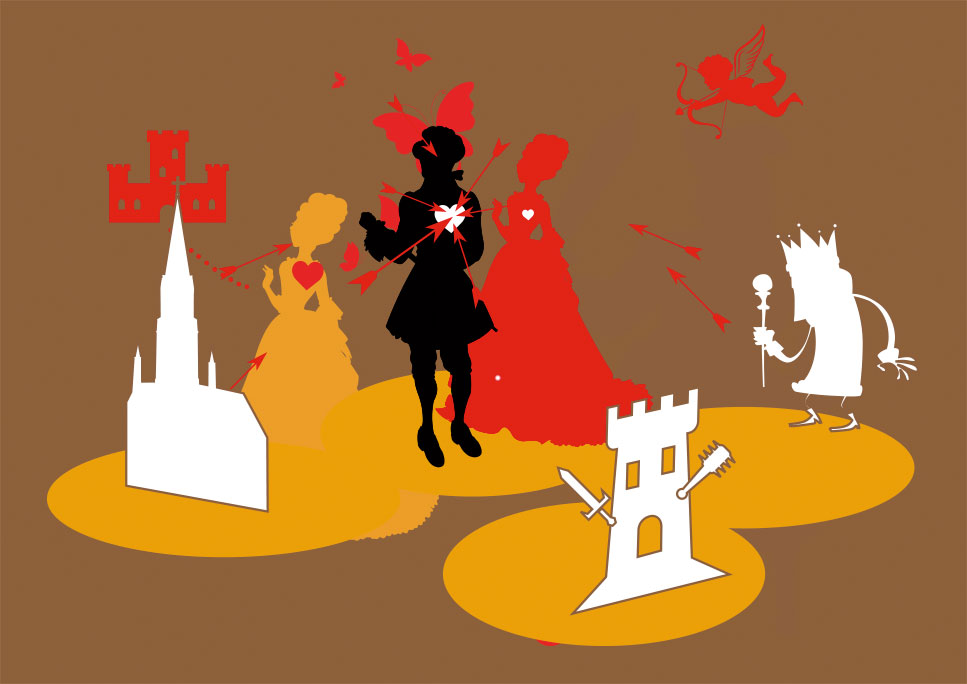Brooke Harrington, professor of Sociology at Dartmouth University (Hanover NH, USA), wrote an article for The Guardian, published August 9th, 2021, titled: ‘Here’s why your efforts to convince anti-vaxxers aren’t working’. Many of her remarks struck me for their similarity to what I am contending in my PhD-thesis Honour versus Honour, published in 2019.
She noticed the problem of how to convince anti-vaxxers of taking the vaccin against Covid-19, who even when they are in hospital beds dying of the virus, deny its workings and effects. Harrington refers to Erving Goffman (1922-1982), an American sociologist I mention in my dissertation when discussing framing. But in this case she quotes Goffman’s essay ‘On Cooling the Mark out’. In this article, he defines an ‘operator’, someone who starts the desinformation, the ‘mark’, the person who is targeted by the operator, and the ‘cooler’, an ally of the operator who tries to console the marked person once the fraud is exposed in a way in which he will accept the inevitable.
Goffman says, quoting Harrington, that ‘admitting you have been conned is so deeply shameful, that ‘marks’ experience it as a kind of social death – the painful death of one of the many social roles we all play’. They will keep on denying that they knew what it meant, and will go on influencing others. In a way they will choose the protection of their selfimage over the common good. Goffman concludes that his is a ‘moral failure’. Though some will publicly accept their false opinion and in the end admit that vaccinating is good, many others just will stick to their views, as a form of self-preservation. Goffman suggest two strategies for dealing with deniers: first, let them feel the ‘social death’ and the shame; second, ‘identify and deploy ‘coolers’ to bring the strayed back into the mainstream fold.
Harrington: ‘The most effective “coolers” are figures that the “marks” trust, people whose opinion they value. Most people aren’t interested in earning the good opinion of just anyone. Rather, we care about status and “face” within specific communities that matter to us, what two other sociologists of the mid-20th century, Herbert Hyman and Robert Merton, called “reference groups”. Everyone belongs to multiple reference groups, many of which overlap, including their families, neighbourhoods, schools and workplaces, and their political affiliations. These groups not only structure our social networks, but serve a gatekeeping function: we generally trust information gleaned from our reference group, and seek approval from others within it.’
But anti-vaxxers won’t listen to every one expressing a deviated opinion. They will though, when someone in their own reference group tells them to start thinking about being not vaccinated. These highly regarded persons in their reference group then act as coolers. Even better are the cooling effects of influencers who themselves were once deniers and now see the light, and publicly admit it. The higher the status, the sooner they might be able to convince other anti-vaxxers to accept the reality of the need to get a vaccin.
How does this relate to honour, honour groups, honour discours and personal honour, as I have distinguished? If someone in a honour group of which you are a member, gives an opinion of how to act or to conduct in social interaction, it will be seriously considered and followed, especially when that someone is a highly regarded and respected member or peer. His or her views will be discussed and become part of the honour discourse that is always there in any honour group, or reference group. Having social interaction as is prescribed by its honour code, imaginary of real, will give a member of such a group a good feeling, hoping his or her reputation will be enhanced: he or she acts according to the honour of the group. And in this way his or her social standing, prestige, and honour position will strengthen, something anybody craves: we want to be respected.
Because people are often members of a range of social groups/reference groups or honour groups, the chance of changing views and opinions coming in from opinion leaders from these other groups is greater than when someone is part of only a few honour groups. Honour is never static, but moves dynamically with new views and experiences and changes in social interaction. This explains why for instance artists or sportspersons, in fact members of other honour groups, are called in to convince the strayed. Like it happens in advertising, although I believe Harrington stresses the need of that hero/heroine being highly regarded as ‘one of us’, in stead of being just any famous person.
As Harrington suggest, the more and the wider the fallacy of an opinion is made known by revered ‘coolers’, the sooner that opinion will be left behind as something that is ‘not done’ and clinging to it leads to shame. This is exactly the way honour works in society: shame, scandal, disgrace or disrespect versus pride, prestige and status for being and acting honourable. Somehow honour’s mechanics work this way, thus keeping people in the fold, avoiding rebellion or secession. A characteristic is that these workings often lead to conflicts, when animosity runs high and dies as quickly as they start.
I am still thinking about how these mechanics could be or are being actively used to control society, or societies/honour groups. Without doubt, the French king Louis XIV was a master in this game (see Norbert Elias). The Dutch police are allowed to take away status symbols of criminals, by enforcing the so-called ‘pluk ze’- laws, Pluck Them Acts. But when closely reading Harrington’s views, this might have the opposite effect because the police can hardly be considered a highly regarded entity within a group of criminals, that might bend their way of thinking and acting. This also shows how much our government and society may profit from sociology/anthropology and knowledge of how groups function…
